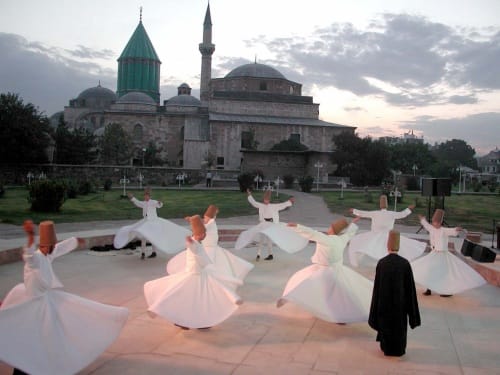Rumi

The best-selling poet in America today, many say, is… er, a Muslim. Not Whitman or Dickinson or Frost, but Rumi, a 13th century Persian poet and theologian, who lived most of his life in Konya, now Central Turkey. But the versions that sell so well bear little resemblance to the original Persian (Dari). Instead they read like New Age cliches. Literal translations are much better, but they are harder to find.
Messageboards these days don’t care about that. They prefer to speculate about Rumi’s relationship with the much older Shams of Tabriz. For gay translators and many gay readers, including Persian-fluent ones, the relationship wasn’t just inspirational, it was absolutely sexual because that was the literary tradition of the day. Although Islamic love poetry is veiled, a rose also may be an anus, the nightingale may be a phallus, and so on...
In the poetry and stories of their contemporary Sa'di it's noticeable, but in the case of Rumi and Shams, I am not so sure. Both were devout Muslims whose love was a passionate, spiritual love for the greater glory of Allah and Shams was his muse. It makes more sense if you have an intuitive understanding of religious faith and its ecstatic nature. This ecstasy was put into practice by the Whirling Dervishes (Mevlevi), a Sufi order founded by Rumi’s followers after his death in 1273 (as in the image below which shows Rumi’s tomb in Konya in the background).

Another of Rumi’s earliest fans, working from poor translations, was Goethe, who admired Persian literature and Islam’s spirituality and who helped introduce them to European Romantic poets. He was always on the lookout for better translations of Rumi, Sa'di, Hafez, the Qur’an and so on. But the poor translations continue to this day, with the homoeroticism minimized or pushed out altogether.
Today, many Persians still rely on these poets as fortune-tellers – reading a poem (ghazal) and relating it to life - the meanings always vary.
